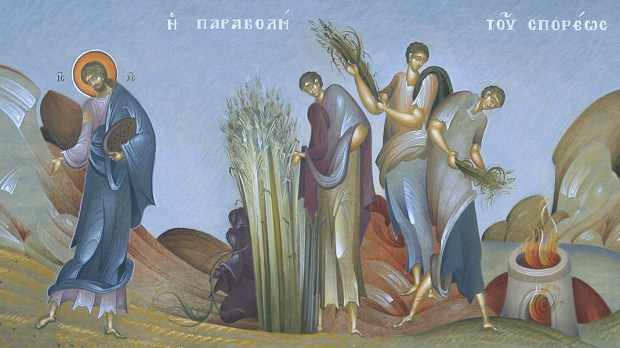Throughout the Gospels Jesus uses parables to teach his disciples. What are they and why did Jesus use them so frequently?
The Catholic Encyclopedia explains, “The word parable (Hebrew mashal; Syrian mathla, Greek parabole) signifies in general a comparison, or a parallel, by which one thing is used to illustrate another. It is a likeness taken from the sphere of real, or sensible, or earthly incidents, in order to convey an ideal, or spiritual, or heavenly meaning. As uttering one thing and signifying something else, it is in the nature of a riddle (Hebrew khidah, Gr. ainigma or problema)…it is intended to stir curiosity and calls for intelligence in the listener.”
The book of Sirach highlights this aspect of parables, “The mind of the intelligent man will ponder a parable, and an attentive ear is the wise man’s desire” (Sirach 3:29).
By their nature, parables have many layers of meaning. Often they do not have one specific interpretation and are open to spiritual pondering, exploring how the parable might reveal some truth in our own lives.
Furthermore, it was clear that Jesus used parables to help us penetrate mysteries that were too deep for us to fully understand. The Kingdom of God was one of the most popular subjects of Jesus’ parables, which reveal to us the impenetrable nature of God’s Kingdom and our inability to fully comprehend it on this earth.
Parables are also perfect examples of how the various senses of scripture are revealed. Each parable has a literal sense (conveyed by the words of Scripture and discovered by exegesis) as well as a spiritual sense. The spiritual sense of parables can further be separated into its allegorical sense (a more profound understanding of events by recognizing their significance in Christ); its moral sense (how they ought to lead us to act justly); and its anagogical sense (in terms of their eternal significance, leading us toward our true homeland).
The Catechism of the Catholic Church adds to this notion, explaining how, “parables are like mirrors for man: will he be hard soil or good earth for the word? What use has he made of the talents he has received?” (CCC 546)
If Jesus used straight definitions when describing the Kingdom of God, it would make it seem like a person could somehow “control” it and “grasp” for it. Instead, the Kingdom of God must be pondered within one’s heart, as Mary did with everything that happened in her life. It must be internalized and take on a personal meaning that is unique, further leading that one individual towards a deeper relationship with Christ.
While we may be tempted to want “the straight facts,” Jesus invites us through parables to go embrace the mystery of God and recognize our inability to fully grasp who God is and what his plan is for us.

Read more:
How the Parable of the Sower can change your life

